Our Work
Founded in 2014, the Center on Privacy & Technology is a leader at the intersection of privacy, surveillance, and civil rights.
Latest Work
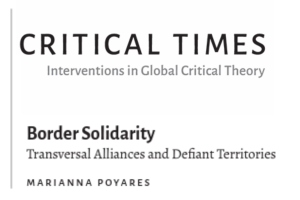
“Border Solidarity: Transversal Alliances and Defiant Territories” paper published
Our postdoctoral Fritz Fellow Marianna Poyares published a paper on the journal Critical Times (Duke University Press) titled "Border Solidarity: Transversal Alliances and Defiant Territories" about immigrant sanctuary and the foundations of solidarity. Based on four years of ethnographic research with the NYC Sanctuary Movement, she argues for that through transversal alliance-building, sanctuary institutes bonds of community and the legitimate standing of non-citizens.
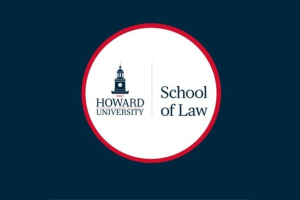
Guest lecture at Howard University School of Law
Senior Associate Clarence Okoh guest lectured at Howard University School of Law for the "Contemporary Issues in AI and Civil Rights" seminar course. He spoke on "AI, Civil Rights and School Discipline."
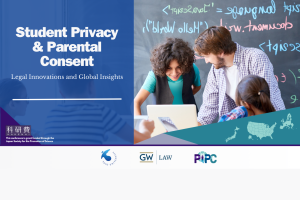
Privacy Center at the “Student Privacy & Parental Consent” conference
On February 7 the Center’s Senior Associate, Clarence Okoh, was a speaker at the Student Privacy & Parental Consent: Legal Innovations and Global Insights. This conference is hosted by Toyo University and co-sponsored by George Washington University Law School Center for Law and Technology and the Public Interest Privacy Center (PIPC). The conference addressed how global policymakers are developing new legal frameworks to better safeguard child and student privacy and safety online against new and emerging technologies. Okoh spoke on a panel titled: "How to Regulate the Black Box of AI-Created 'Educational Opportunities." Okoh was also a speaker at the pre-conference workshop Child Privacy Online. Clarence spoke on a panel titled "Deep Dive: Regulating AI and Children."
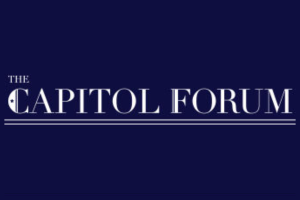
Senior Associate quoted in the Capitol Forum
Senior Associate Clarence Okoh was quoted in news article from the Capitol Forum written by Ethan about the implications of a recent federal class action lawsuit against a large data broker firm. Clarence emphasized the need to focus on the implications for vulnerable communities.
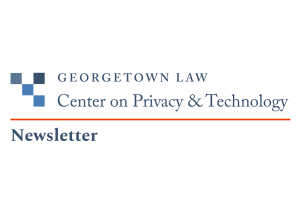
February 2, 2025 Newsletter
The Privacy Center sent out a newsletter titled "Upcoming Events" on 2/3/2025 containing information about the No, We Don't Live In A F%#*ing Simulation mini-course, Seeking the Good and the Real In an Algorithmic Age event, and a Tech & Society week preview.
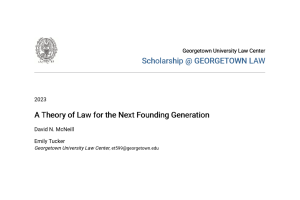
“A Theory of Law for the Next Founding Generation” paper published
Executive Director Emily Tucker co-authored a paper with philosopher David N. McNeill titled "A Theory of Law for the Next Founding Generation." The paper argues that no one gives us our rights except ourselves. In order to protect our rights under the autocratic aspirations of the current administrations, there must be a fundamental reformation in our understanding fo the relationship between constitutional legitimacy and democratic self-rule.

Privacy Center report “American Dragnet” cited in The New York Times
The Privacy Center's 2022 report "American Dragnet: Data-Driven Deportation in the 21st Century" was cited in this New York Times article about the technology the Trump administration could use to mobilize its immigration policy, specifically mass deportations. "Agents can obtain records of utility bills for roughly three-quarters of Americans and driver’s licenses for a third of Americans, according to a 2022 study by Georgetown University."

“American Dragnet” report cited and Distinguished Fellow quoted in the New York Times
The Privacy Center's 2022 report "American Dragnet" was cited in an article in the New York Times about the technology the Trump administration could use to mobilize its immigration policy, specifically mass deportations. "Agents can obtain records of utility bills for roughly three-quarters of Americans and driver’s licenses for a third of Americans, according to a 2022 study by Georgetown University." Distinguished Fellow Justin Sherman was also quoted in the article: "Privacy harms may seem theoretical on paper, but they’re never theoretical for vulnerable people on the front lines," said Sherman.

Privacy Center Fritz Fellow on “The Brazil Unfiltered” podcast
Marianna Poyares spoke with Prof. James Green (Brown University) on the Brazil Unfiltered podcast episode "The Impact of Big Tech on Brazilian Politics" about the reception in Brazil of Meta's recent decision of ending fact-checking and its impact in the upcoming Brazilian elections.

Fritz Fellow on the Brazil Unfiltered podcast
Fritz Fellow Marianna Poyares spoke with Prof. James Green (Brown University) on the Brazil Unfiltered podcast episode "The Impact of Big Tech on Brazilian Politics" about the reception in Brazil of Meta's recent decision of ending fact-checking and its impact in the upcoming Brazilian elections.
